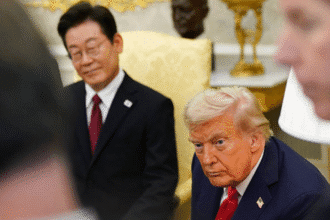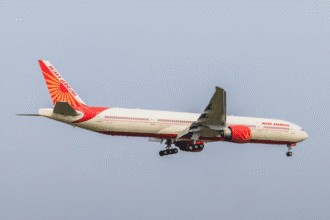Ghouta, Syria – For the first time, survivors of Syria’s devastating chemical attacks have spoken openly about the horrors they endured, breaking years of silence imposed by the regime of President Bashar al-Assad.
Tawfiq Diam, who lost his wife and four children in a 2018 chlorine gas attack on Douma in Eastern Ghouta, recounted the tragic events and the oppressive conditions that prevented him from speaking out. “If I’d spoken out before, Assad’s forces would have cut off my tongue,” said Diam, his voice trembling with emotion as he held a photograph of his children, Joudy, Mohammed, Ali, and Qamar, all aged between 8 and 12.
The Organisation for the Prohibition of Chemical Weapons (OPCW) has reported that a Syrian air force helicopter dropped two yellow cylinders filled with chlorine gas over Douma on April 7, 2018. At least 43 people died in the attack, although Diam claims the toll was far higher. “My children were choking; yellow foam came from their mouths,” he said, recalling the chaos outside his home.
Mass Graves and Lingering Grief
Accompanied by other survivors, Diam visited a site believed to be a mass grave for victims of the 2018 attack. “This is the first time I’ve stepped here,” he said. Pieces of bone were visible on the mound, and Diam tearfully expressed his wish to exhume the graves and give his family a dignified burial.
Khalid Naseer, another survivor, lost his pregnant wife, Fatima, and two children in the same attack. “The whole world knows Assad killed his own people,” said Naseer, his anger boiling over as he called for renewed investigations into the atrocities.
A Legacy of Chemical Weapon Use
The 2018 chlorine attack is just one of many instances of chemical weapons use in Syria’s brutal civil war. In 2013, sarin gas attacks on Eastern and Western Ghouta killed hundreds. Between 2013 and 2018, Human Rights Watch documented at least 85 chemical weapons attacks, with the Syrian government implicated in most cases.
The OPCW has since confirmed Assad’s forces as perpetrators of multiple chemical attacks in 2017 and 2018. Despite signing the Chemical Weapons Convention in 2013 and agreeing to destroy its arsenal, Assad’s regime has repeatedly denied responsibility for chemical warfare, dismissing the Douma attack as “staged.”
Survivors Seek Justice and Truth
Survivors are calling for new investigations into the attacks, questioning the credibility of past findings. Abdul Rahman Hijazi, who testified to the OPCW under duress, revealed that Syrian intelligence officers coerced him to lie, threatening his family’s safety. “I was told to say people died from dust inhalation, not chemicals,” Hijazi said. “Now I want the truth to come out.”
Both Diam and Naseer have called for international accountability for Assad’s regime and justice for the victims. “I want justice for every parent,” said Hijazi. “Not a day goes by when I don’t think of my children,” added Diam, his voice cracking under the weight of his grief.
A Broken Community, A Cry for Accountability
The scars of war remain evident in Eastern Ghouta, where entire neighborhoods lie in ruins. Survivors continue to grapple with the trauma and the loss of their loved ones while demanding that the international community hold Assad’s regime accountable.








